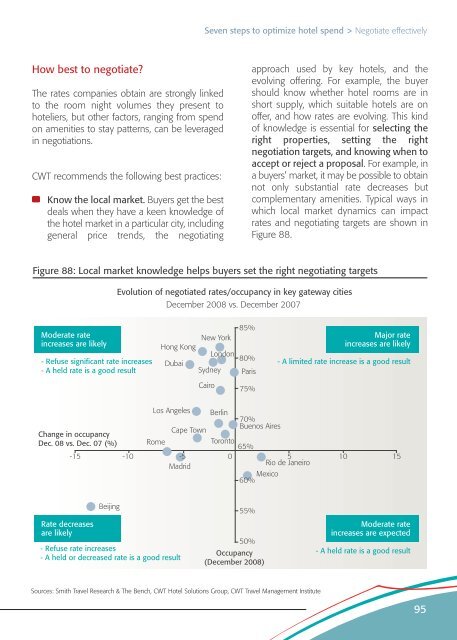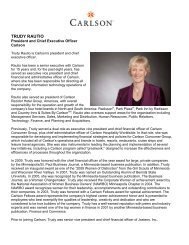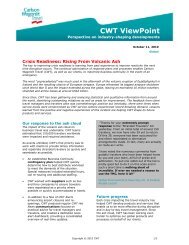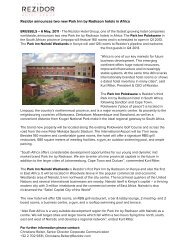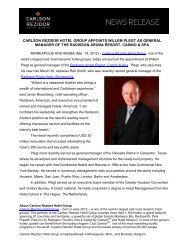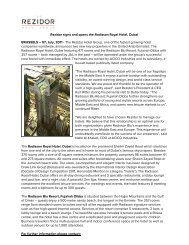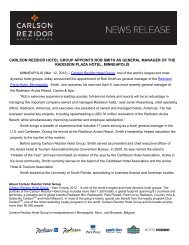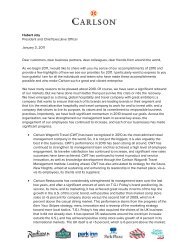Room for Savings: Optimizing Hotel Spend - Carlson
Room for Savings: Optimizing Hotel Spend - Carlson
Room for Savings: Optimizing Hotel Spend - Carlson
You also want an ePaper? Increase the reach of your titles
YUMPU automatically turns print PDFs into web optimized ePapers that Google loves.
Seven steps to optimize hotel spend > Negotiate effectively<br />
How best to negotiate?<br />
The rates companies obtain are strongly linked<br />
to the room night volumes they present to<br />
hoteliers, but other factors, ranging from spend<br />
on amenities to stay patterns, can be leveraged<br />
in negotiations.<br />
CWT recommends the following best practices:<br />
Know the local market. Buyers get the best<br />
deals when they have a keen knowledge of<br />
the hotel market in a particular city, including<br />
general price trends, the negotiating<br />
approach used by key hotels, and the<br />
evolving offering. For example, the buyer<br />
should know whether hotel rooms are in<br />
short supply, which suitable hotels are on<br />
offer, and how rates are evolving. This kind<br />
of knowledge is essential <strong>for</strong> selecting the<br />
right properties, setting the right<br />
negotiation targets, and knowing when to<br />
accept or reject a proposal. For example, in<br />
a buyers’ market, it may be possible to obtain<br />
not only substantial rate decreases but<br />
complementary amenities. Typical ways in<br />
which local market dynamics can impact<br />
rates and negotiating targets are shown in<br />
Figure 88.<br />
Figure 88: Local market knowledge helps buyers set the right negotiating targets<br />
Evolution of negotiated rates/occupancy in key gateway cities<br />
December 2008 vs. December 2007<br />
Moderate rate<br />
increases are likely<br />
- Refuse significant rate increases<br />
- A held rate is a good result<br />
New York<br />
Hong Kong<br />
London<br />
Dubai<br />
Sydney<br />
85%<br />
80%<br />
Paris<br />
Major rate<br />
increases are likely<br />
- A limited rate increase is a good result<br />
Cairo<br />
75%<br />
Los Angeles Berlin<br />
70%<br />
Buenos Aires<br />
Cape Town<br />
Change in occupancy<br />
Dec. 08 vs. Dec. 07 (%) Rome<br />
Toronto<br />
65%<br />
-15 -10 -5<br />
0 5 10 15<br />
Madrid<br />
Rio de Janeiro<br />
Mexico<br />
60%<br />
Rate decreases<br />
are likely<br />
Beijing<br />
- Refuse rate increases<br />
- A held or decreased rate is a good result<br />
55%<br />
50%<br />
Occupancy<br />
(December 2008)<br />
Moderate rate<br />
increases are expected<br />
- A held rate is a good result<br />
Sources: Smith Travel Research & The Bench, CWT <strong>Hotel</strong> Solutions Group, CWT Travel Management Institute<br />
95


